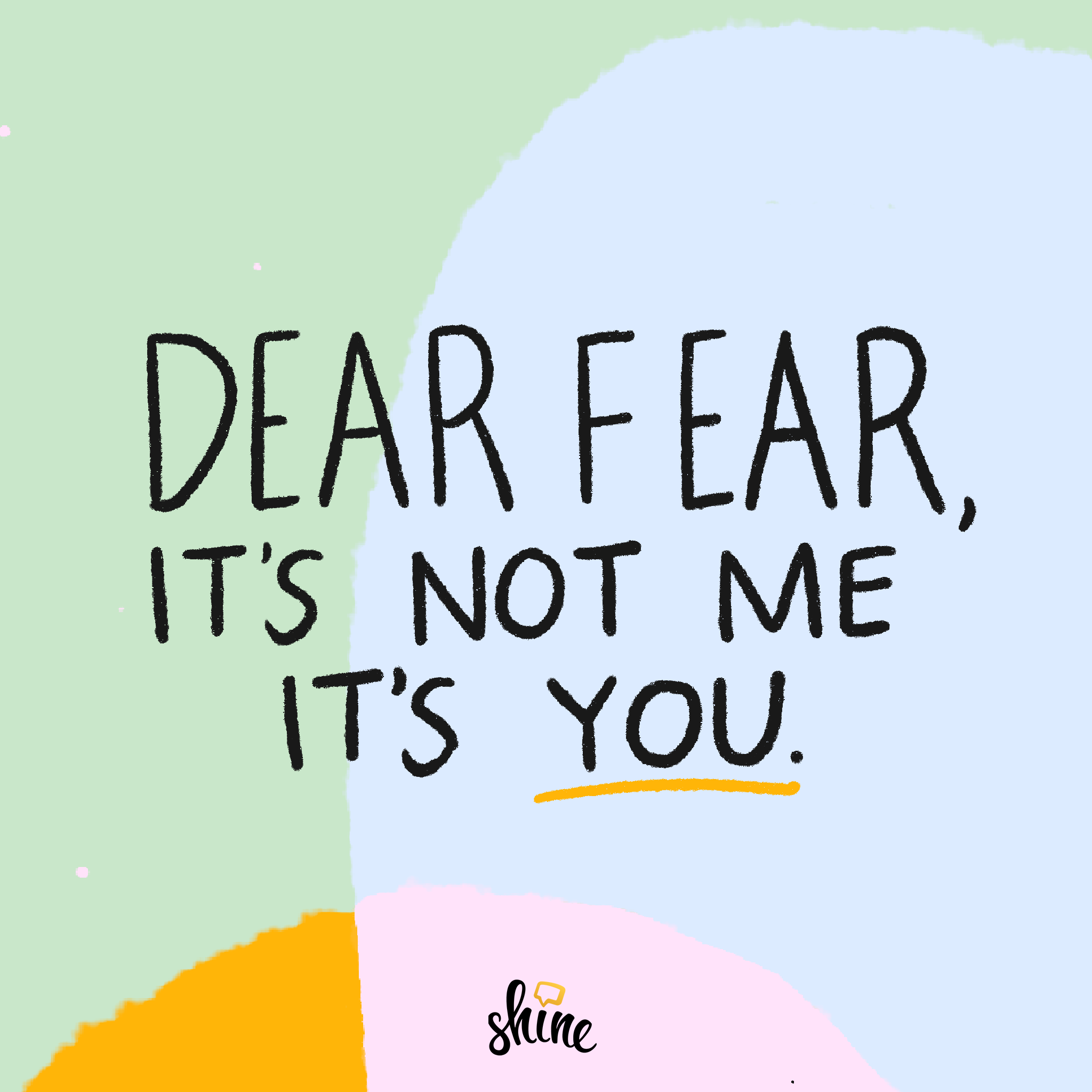Why You Should Write Letters to Your Emotions—and How to Start
Emotions get a bad rap.
As a society, we’re constantly trying to lessen them, hide them, reel them in, and alter them. But the thing is: No matter what we do, our emotions will always be there.
So, why not spend more time trying to get a clearer understanding by building a deeper relationship with them?
I get it—that’s easier said than done. Tuning into emotions can be tricky, and getting to the root of why you’re feeling them at any given moment isn’t always self-explanatory. There’s a lot of, “Where do I even start?”
But one tried-and-true practice that a number of psychologists suggest when it comes to exploring your emotions is writing therapy. More specifically, transactional writing.
Transactional writing, or letter writing, is intended to help us process our feelings. Writing a letter encourages you to take a step back from a particular trauma or emotions and create perspective—this gives you the chance to examine what it is you are actually experiencing. Research shows that writing about one’s emotions is linked to relieving stress and anxiety.
Writing a letter encourages you to take a step back from particular trauma or emotions and create perspective—this gives you the chance to examine what it is you are actually experiencing.
It’s a tactic I personally love. There have been a number of moments in my life in which I’ve felt consumed by a feeling—so many thoughts, worries, doubts, fears racing through my mind all at once.
It wasn’t until I took pen to paper and was able to release these emotions that I finally gained clarity. Writing a letter to my emotions, instead of allowing them to run wild in my mind, gave me a chance to step outside of myself in order to find peace.
How exactly is this done? Well, similar to a traditional letter you can start by addressing it to someone—or in this instance, some feeling. You can, of course, select whichever emotions you feel are most prominent in your life, but a few common ones we'll dig into are hope, fear, ambition, stress, and love.
The key to writing a letter to your emotions is communicating your thoughts and feelings. To do so, ask yourself intentional questions about how this particular emotion has recently surfaced in your life. Then, write down the answers as though you are talking to the emotion itself.
The next time you're feeling some kind of way, try breaking out a pen and paper to write your own letter—or, even just draft it in your Notes app. Here, we dig into what five emotional letters could look like.
Dear Hope
Hope is something a number of us yearn for in moments of difficulty when we need the will to keep going. Think about these questions: How have you used hope recently? What is it helping you navigate? How can you call on it more?
Hope is something a number of us yearn for in moments of difficulty when we need the will to keep going.

For instance:
“Dear Hope, When I received the difficult news that I was going to be laid off, I had to lean on you to ease my pain. Without you, I don’t know how I’d get through the job search process.”
Or
“Dear Hope, I was recently laid off and need you at this moment. To find you, I’ll have to believe—in myself and that things will be okay. I’m going to work to keep you close so I can stay motivated.”
Dear Fear
With emotions like fear, on the other hand, you may find more success by incorporating a 2-step process of transactional writing.
Author of the game-changing memoir Eat, Pray, Love, Elizabeth Gilbert, once shared with readers her practice of writing to fear.
Give your fear the opportunity to express itself by asking, “What are you actually terrified about, in this situation?”
She remixes the traditional form of transactional writing and instead begins with a letter from fear. Elizabeth explains that she likes to give her fear the opportunity to express itself by asking, “What are you actually terrified about, in this situation?” She then writes out exactly what is making her feel fearful, which serves as her letter from fear.
In a second letter—written from her to fear—she’ll compassionately acknowledge fear’s reasoning and from there provide it with a solution to help ease her dread.
Her example letter:
“Dear Fear: I recognize and respect that you are part of this family, so I will never exclude you from our activities, but still—your suggestions will NEVER be followed. You’re allowed to have a seat and you’re allowed to have a voice, but you are not allowed to have a vote.”
Dear Ambition
Ambition fuels the desire you have to meet your aspirations. Ask yourself: How do you incorporate it into your daily life? Is it something you hope to have more of? How has ambition gotten you to where you are currently? When do you feel you’ve needed more?
For example:
“Dear Ambition, You push me to go for things that seem completely out of reach—and I may love-hate you for that. But ultimately, you remind me that I’m capable of so much and my ability to go after big things.”
Dear Stress
Oh, stress. Stress is something a number of us encounter on a daily basis, maybe even several times throughout the day. What are some things you can say to it to bring more peace to your day-to-day life? What situations bring you the most stress? How has your body reacted to it? In what situations has stress actually helped you in the past?
One take:
“Dear Stress, Wow, you’re really showing up today. I know you’re trying to help me get stuff done, but, honestly, you’re kind of distracting me from what I actually have to do. I see you—but I think I’m going to quiet down your voice so I can focus.”
Dear Love
The ultimate love letter: A letter to love. The best example of transactional writing may have to be when R&B artist, Musiq Soulchild melodiously speaks to Love in a song with the same title.
Love Through all the ups and downs the joys and hurts Love For better or worse I still will choose you first
In what ways are you choosing to spread love each day? Who are some of the people that you share the love with or would like to receive more love from? How are you showing yourself the love that you deserve?
Through asking questions that require more than a simple yes or no answer, you can really dig deep into how these emotions play into your life—after all, they are a part of you.
Through asking questions that require more than a simple yes or no answer, you can really dig deep into how these emotions play into your life.
By nurturing each emotion, you’re allowing yourself the space necessary to live wholeheartedly.
Shine is supported by members like you. When you buy through links on our site, we may earn an affiliate commission.
Read next: How to Deal With Your ‘Meta-Emotions’—aka Feeling Bad About Your Feelings


Shine is supported by members like you. When you buy through links on our site, we may earn an affiliate commission. See our affiliate disclosure for more info.


